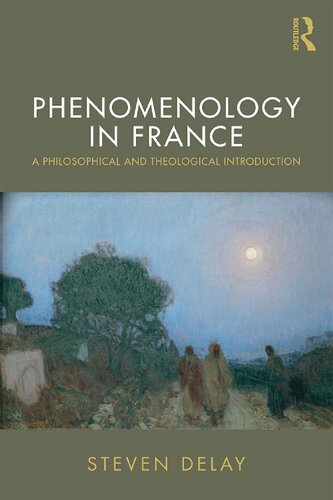

Most ebook files are in PDF format, so you can easily read them using various software such as Foxit Reader or directly on the Google Chrome browser.
Some ebook files are released by publishers in other formats such as .awz, .mobi, .epub, .fb2, etc. You may need to install specific software to read these formats on mobile/PC, such as Calibre.
Please read the tutorial at this link: https://ebookbell.com/faq
We offer FREE conversion to the popular formats you request; however, this may take some time. Therefore, right after payment, please email us, and we will try to provide the service as quickly as possible.
For some exceptional file formats or broken links (if any), please refrain from opening any disputes. Instead, email us first, and we will try to assist within a maximum of 6 hours.
EbookBell Team

5.0
50 reviewsThis book is an introduction to French phenomenology in the post-1945 period. While many of phenomenology’s greatest thinkers―Husserl, Heidegger, Sartre and Merleau-Ponty―wrote before this period, Steven DeLay introduces and assesses the creative and important turn phenomenology took after these figures. He presents a clear and rigorous introduction to the work of relatively unfamiliar and underexplored philosophers, including Jean-Louis Chrétien, Michel Henry, Jean-Yves Lacoste, Jean-Luc Marion and others.
After an introduction setting out the crucial Husserlian and Heideggerian background to French phenomenology, DeLay explores Emmanuel Levinas’s ethics as first philosophy, Henry’s material phenomenology, Marion’s phenomenology of givenness, Lacoste’s phenomenology of liturgical man, Chrétien’s phenomenology of the call, Claude Romano’s evential hermeneutics, and Emmanuel Falque’s phenomenology of the borderlands. Starting with the reception of Husserl and Heidegger in France, DeLay explains how this phenomenological thought challenges boundaries between philosophy and theology. Taking stock of its promise in light of the legacy it has transformed, DeLay concludes with a summary of the field’s relevance to theology and analytic philosophy, and indicates what the future holds for phenomenology.
Phenomenology in France: A Philosophical and Theological Introduction is an excellent resource for all students and scholars of phenomenology and continental philosophy, and will also be useful to those in related disciplines such as theology, literature, and French studies.